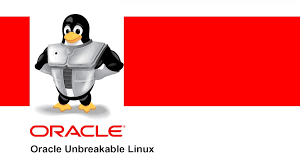Why most Claudion subscribers choose Oracle Linux on RHEL Flavors, What are other Options ?
In a recently published report, Claudion, the leading hosting provider in the Gulf, confirmed that most of their subscribers opt for Oracle Linux. In this blog we are checking why?
Claudion community is developing and following the recent trends in an unprecedented way. During the recent wave, many Claudion subscribers have opted for Oracle Linux on RHEL flavors. It happened because of awe-inspiring features and usabilities offered by Oracle Linux at nearly zero cost.
With Oracle Linux, users can manage security threats and mitigate against vulnerabilities at a much faster pace. In addition, it’s the only operating environment that offers hypervisor, kernel, and user-space live pitching with zero downtime requirements.
Free Service with Top-Notch Support
Oracle Linux is completely free, providing all security patches and updates without costing you a penny. Though a bit of investment is required for support-based features, but the premium-quality support of Oracle justifies every single dime you have spent on it.
Exceptional Usability
Due to preloaded packages and spot-on installation, the usability offered by Oracle Linux is unparalleled. Even the novices of Linux can easily and efficiently operate it without any external assistance.
Backing from a trusted company

Oracle Linux is maintained by Oracle Corporation and publish all the codes and updates regularly for open source community. Trustworthiness that Oracle built for decades help cloud subscribers to choose OL
Native Oracle database support
Most of the businesses in the Gulf traditionally use Oracle DB. As Oracle Linux and Oracle DB maintained by the same company, users believe, rightly, that database performance has be optimally tuned on OL. This helps most of Oracle DB customers to move to OL Cloud.
Options other than Oracle Linux
There are plenty of options —other than Oracle Linux are— available for enterprises, cloud computing, and commercial market users. A few notable alternates of it includes;
Fedora
It is a general-purpose distribution system developed and managed by the Redhat-sponsored Fedora Project. Developers mainly use it during their software packages' development and testing phases before launching them on RHEL. While using Fedora latest versions of the software are guaranteed.
Alma Linux
It's an open-source community-developed system managed by Cloud Linux. In order to access the source code, users can visit the Almalinux Github page. The prime focus of Alma Linux is assuring an enterprise-grade platform that is established on cloud or data centers for production workloads.
ClearOS
ClearOS is an open-source, secure, and extremely easy-to-use operating system at an infinitesimal price. It's ideal for small businesses that don't want to indulge in IT-based technicalities. It's currently available in three versions: home, business, and community. Home version deals with small offices while mid-sized businesses prefer business edition to enjoy paid support. The community edition is completely free, but support is missing here.
Rocky Linux
It's a completely free, open-source operating system created by Rocky Linux Foundation to bridge the gap created by the shift of CentOS's focus towards Stream. Its recent update 8.4 was built to offer reliability and stability needed in production workloads.
Debian/Ubuntu Flavor
Another worth-mentioning flavor of Linux is Debian. It’s an open-source, completely secure Linux operating system releasing semiannual updates on a regular basis. Built-in virus protection and accessibility for everyone makes Ubuntu one of the most preferred choices for personal computers and local servers. Ubuntu is currently running with 8 different flavors, each varying on the set of packages installed in it.
The Bottom Line
Oracle Linux is designed by Oracle Cooperation, offering exceptional flexibility and accessibility in addition to enterprise-grade security and stability of RHEL. Such a multitude of benefits marks Oracle Linux as the best-suit option for Claudion subscribers.

Ethisham M
Ethisham is a technical blogger and regular contributor for Claudion, ERPGulf and related publications.
No comments yet. Start a new discussion.